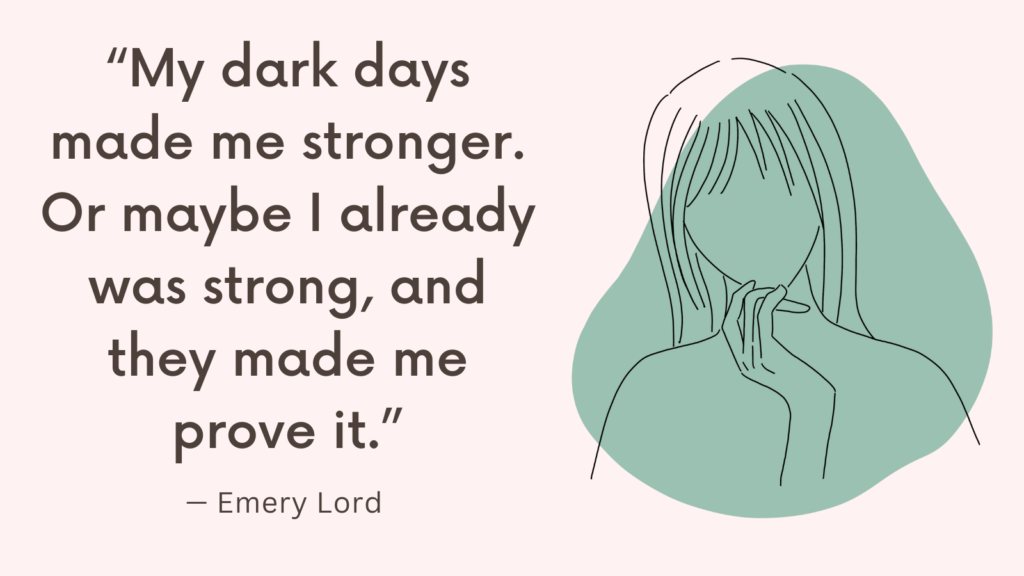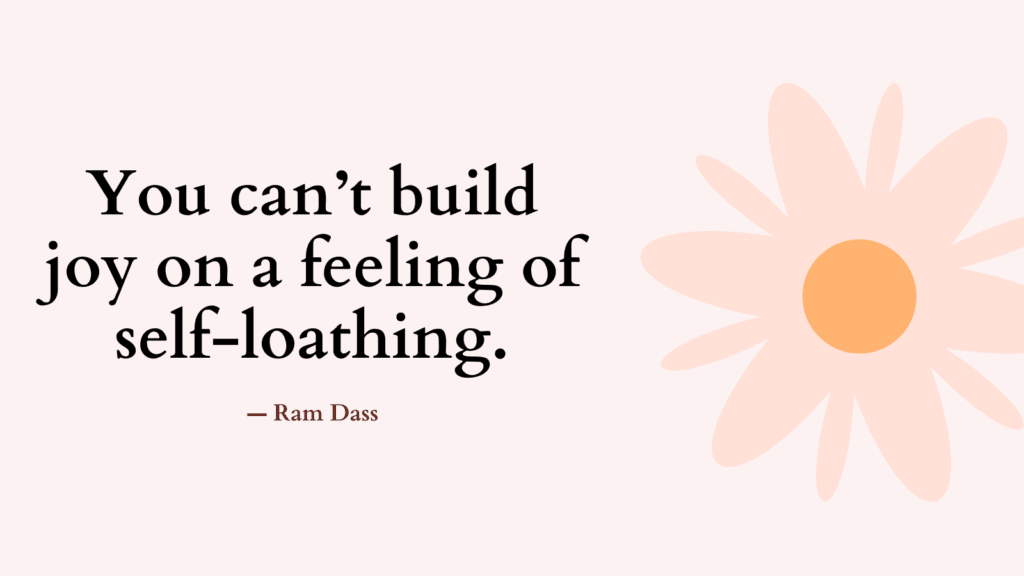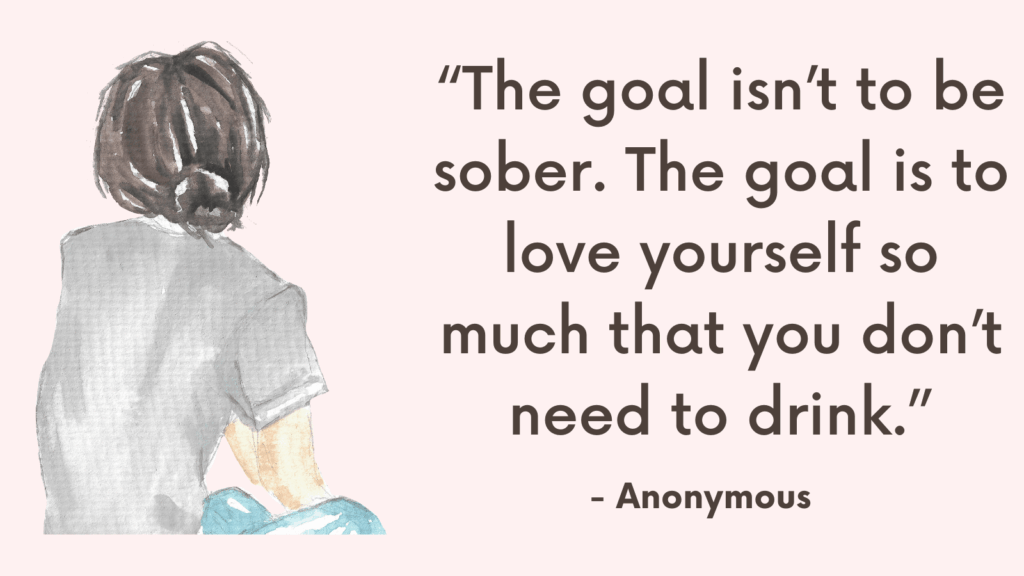This post contains an explanation of the 5 stages of addiction recovery along with helpful addiction recovery tips.
What Constitutes an Addiction?
An addiction is a complex and chronic disorder characterized by compulsive engagement in a particular substance or behavior, despite negative consequences.
It is important to note that addiction is not limited to substances such as drugs or alcohol but can also include behaviors like gambling, gaming, or even excessive internet use.
To determine the presence of an addiction, psychologists often refer to specific criteria outlined in diagnostic manuals like the Diagnostic and Statistical Manual of Mental Disorders (DSM-5).
The DSM-5 lists several key components that contribute to diagnosing a substance use disorder or behavioral addiction. These components include:
1. Impaired control: The individual has difficulty controlling or stopping their substance use or behavior, often engaging in it for longer periods than intended or repeatedly failing to reduce or quit.
2. Social impairment: The addiction negatively affects an individual’s social, occupational, or personal functioning, leading to disruptions in relationships, work or school performance, and other areas of life.
3. Risky use: The individual continues to engage in substance use or behavior despite knowing the potential physical, psychological, or social risks and harm associated with it.
4. Tolerance: Over time, the individual requires larger amounts of the substance or increased engagement in the behavior to achieve the desired effect, indicating the development of tolerance.
5. Withdrawal symptoms: When the individual reduces or stops their substance use or behavior, they experience withdrawal symptoms. These symptoms can be physical, psychological, or both and vary depending on the substance or behavior involved.
6. Preoccupation and cravings: The individual spends a significant amount of time thinking about or craving the substance or behavior, often experiencing intense urges or desires to engage in it.
It is important to note that addiction is a complex condition influenced by various factors, including biological, psychological, and social elements.
The severity and impact of addiction on an individual’s life can also vary, ranging from mild to severe.
Seeking professional help from a psychologist or addiction specialist is crucial for an accurate diagnosis and appropriate treatment approach.
Related: 4 Stages of Addiction (+FREE Worksheets)
5 Stages of Addiction Recovery
Stage 1. Pre-contemplation
In this stage, individuals may not acknowledge or be aware of their addiction.
They may not see the negative consequences associated with their behavior.
Others may have attempted to address their addiction before but were unsuccessful in sustaining change.
During this stage, it is essential to provide education and increase awareness about the consequences of addiction, as well as the potential benefits of recovery.
Stage 2. Contemplation
During this stage, individuals begin to recognize the impact of their addiction and consider making changes.
They may weigh the pros and cons of quitting and start seeking information or help.
It is crucial to foster a non-judgmental and supportive environment, allowing individuals to explore their ambivalence towards change.
Motivational interviewing techniques can be useful in assisting clients in resolving their inner conflicts and increasing their motivation for change.
Stage 3. Preparation
In the preparation stage, individuals actively plan to make a change in their addictive behavior.
This may involve setting goals, seeking treatment options, and gathering support from loved ones or professionals.
Encourage individuals to develop a specific action plan that includes strategies to cope with triggers, cravings, and potential setbacks.
This stage is an opportunity to address any underlying issues contributing to addiction and establish a solid foundation for recovery.
Related: How To Step Out Of Denial? Top 10 Steps To Overcome Denial When The Truth Is Heartbreaking
Stage 4. Action
This stage involves taking concrete steps towards recovery, such as participating in therapy, attending support groups, and implementing strategies to abstain from addictive behaviors.
It is crucial to provide ongoing support and monitor progress, as individuals may face various challenges during this period.
Encouraging the development of healthy coping mechanisms and alternative activities can help replace previous addictive behaviors.
Stage 5. Maintenance
The maintenance stage focuses on sustaining recovery and preventing relapse.
Individuals develop coping mechanisms, engage in ongoing therapy or support groups, and actively seek to adopt healthy lifestyles.
It is vital to address relapse prevention strategies, strengthen social support networks, and encourage continued personal growth and self-reflection.
Related: What Is Emotional Sobriety and How to Achieve It? (+FREE Worksheets)
Tips for Addiction Recovery
1. Seek professional help
Reach out to a qualified mental health professional who specializes in addiction.
They can provide you with a comprehensive assessment and develop an individualized treatment plan tailored to your specific needs.
2. Build a support network
Surround yourself with supportive individuals who understand your struggle with addiction.
This can include family members, friends, support groups, or recovery communities.
Having a strong support network can provide encouragement, guidance, and accountability throughout your recovery journey.
3. Establish realistic goals
Set achievable and realistic goals for your recovery.
Breaking down larger goals into smaller, manageable steps can help you stay motivated and track your progress.
Celebrate each milestone along the way to boost your confidence and sense of accomplishment.
4. Develop healthy coping mechanisms
Identify healthier alternatives to cope with stress, anxiety, or other triggers that may contribute to your addictive behavior.
Engage in activities that promote relaxation, such as exercise, mindfulness meditation, deep breathing exercises, or hobbies that bring you joy and fulfillment.
Related: Best 99 Coping Skills (+FREE Coping Worksheets)
5. Implement a structured routine
Create a daily routine that incorporates healthy habits.
Structure helps establish stability and reduces the risk of falling back into old patterns.
Include activities like regular sleep patterns, balanced meals, exercise, therapy or counseling sessions, and engaging in positive social interactions.
6. Educate yourself about addiction
Learn about the science and psychology behind addiction to better understand its effects on your mind and body.
This knowledge can empower you to make informed decisions and develop effective strategies to prevent relapse.
7. Address underlying issues
Addiction is often linked to underlying emotional or psychological issues.
Working with a therapist can help identify and address these root causes, providing insights into any trauma, unresolved conflicts, or co-occurring mental health disorders that may be contributing to your addiction.
8. Practice self-care
Prioritize self-care activities that promote physical, mental, and emotional well-being.
This can include getting enough sleep, eating nutritious meals, engaging in regular exercise, practicing mindfulness or relaxation techniques, and engaging in activities that bring you joy and help you relax.
Related: Top 45 Self Care Day Ideas at Home To Kickstart Your Self Care Ritual
9. Avoid triggers and risky environments
Identify and avoid people, places, or situations that may trigger cravings or lead to a relapse.
This may involve distancing yourself from certain friendships, avoiding specific locations associated with your addiction, and finding new, healthier social activities to engage in.
10. Practice stress management
Find healthy ways to manage stress and emotions.
This can include participating in regular exercise, practicing mindfulness or meditation, journaling, connecting with nature, or engaging in creative outlets like art or music.
11. Celebrate progress
Acknowledge and celebrate your achievements and progress, no matter how small they may seem.
Recovery is a journey, and every step towards sobriety and positive change should be recognized and celebrated.
Related: How To Start A Self Love Journey? Top 10 Powerful Ways to Love Yourself More
How to Prevent Relapse?
A relapse refers to the return to addictive behavior after a period of abstinence or recovery.
It is a common occurrence in addiction recovery and can be a setback in one’s progress.
Relapses can vary in duration and severity, ranging from one-time slips to a complete return to previous patterns of substance use or addictive behaviors.
Relapses occur due to a combination of factors, including physical, psychological, and environmental triggers.
Addiction rewires the brain, making it difficult to resist cravings and control impulses.
Stress, emotional turmoil, exposure to triggering situations, and insufficient coping mechanisms can all contribute to the vulnerability of relapse.
While relapse prevention strategies vary depending on individual circumstances, here are some scientifically supported approaches:
1. Build a strong support network
Having a supportive network of friends, family, and professionals who understand your struggles and are available to provide encouragement, guidance, and accountability can significantly reduce the risk of relapse.
Joining support groups like Alcoholics Anonymous (AA), Narcotics Anonymous (NA), or SMART Recovery can also be beneficial.
2. Develop healthy coping mechanisms
Identify healthy alternatives to addictive behaviors.
Engage in activities like exercise, meditation, art, or hobbies that provide pleasure, stress relief, and a sense of purpose.
Learning assertiveness, problem-solving, and stress management skills can also reduce reliance on substances or addictive behaviors.
Related: How To Feel Your Feelings? Top 9 Difficult Emotions To Cope With In Healthy Ways
3. Plan and practice self-care
Prioritize self-care by focusing on physical, emotional, and mental well-being.
Ensure adequate sleep, nutrition, and exercise to support overall health.
Engage in activities that promote relaxation, such as practicing mindfulness, deep breathing exercises, or engaging in enjoyable activities.
4. Recognize and avoid triggers
Identify people, places, events, or emotions that trigger cravings or thoughts of substance use.
Modify your environment, establish boundaries, or avoid triggering situations altogether, especially in the early stages of recovery.
Developing healthy habits and finding new social networks can help create a supportive and trigger-free environment.
5. Continuously educate yourself
Stay informed about addiction, recovery, and relapse prevention. Understand the science behind addiction, including the effects of substances on the brain and the importance of long-term recovery.
Education can empower you to make informed decisions, recognize warning signs, and proactively address challenges.
Related: Top 10 Books For Addiction Recovery
6. Establish a relapse prevention plan
Work with a therapist or addiction professional to develop a personalized relapse prevention plan.
This plan should include recognizing warning signs, specific coping strategies, emergency contacts, and steps to take if a relapse occurs.
Review and modify the plan regularly to adapt to changing circumstances.
7. Focus on long-term goals
Setting realistic, achievable, and meaningful goals can provide direction and motivation during recovery.
Establish short-term and long-term goals that align with your values and aspirations, and celebrate milestones to reinforce your progress.
Conclusion
Recovery is a highly individual process, and what works for one person may not work for another.
It is essential to find strategies and treatments that align with your unique needs and preferences.
Remember, relapse doesn’t signify failure but rather presents an opportunity for learning and growth.
Recovery is a journey, and staying committed to maintaining sobriety while incorporating these prevention strategies can enhance your chances of achieving long-term success.
Related: Addiction Recovery Resources
FREE Addiction Worksheets
FAQ
Can addiction be cured?
While addiction cannot be cured, it can be effectively managed and individuals can achieve long-term recovery.
Addiction is a complex condition that requires ongoing support and maintenance.
How long does addiction recovery take?
The duration of addiction recovery varies depending on several factors, including the substance or behavior involved, the severity of the addiction, and individual factors.
Recovery is generally seen as a lifelong process, as maintaining sobriety and preventing relapse require ongoing effort and support.
What is withdrawal, and how can it be managed?
Withdrawal refers to the physiological and psychological symptoms that occur when reducing or discontinuing substance use.
These symptoms can be managed through medically supervised withdrawal management programs that provide support, medication assistance, and monitoring to ensure the safety and comfort of the individual.
Related: Best 17 Addiction Journal Prompts
Are there support groups available for addiction recovery?
Yes, support groups such as Alcoholics Anonymous (AA), Narcotics Anonymous (NA), or SMART Recovery can provide invaluable support, understanding, and encouragement throughout the recovery process.
These groups allow individuals to share experiences, gain insights from others, and receive ongoing support.
Can spirituality play a role in addiction recovery?
For some individuals, spirituality can be an important aspect of their recovery journey.
Engaging in spiritual practices, finding meaning and purpose, and connecting with a higher power can provide solace, support, and a sense of belonging.




